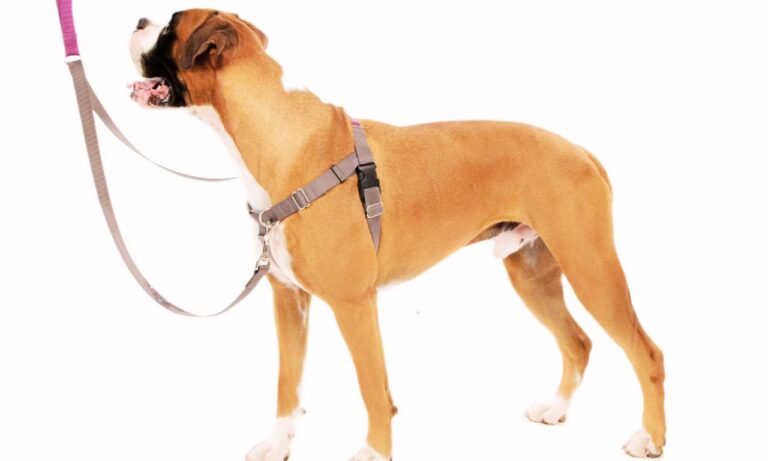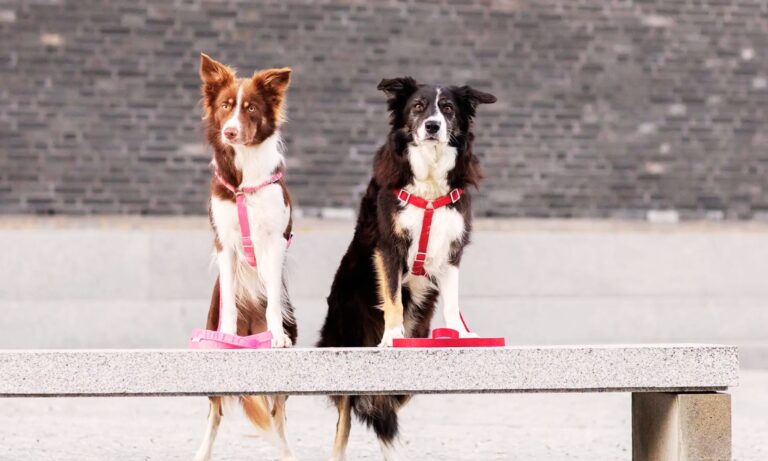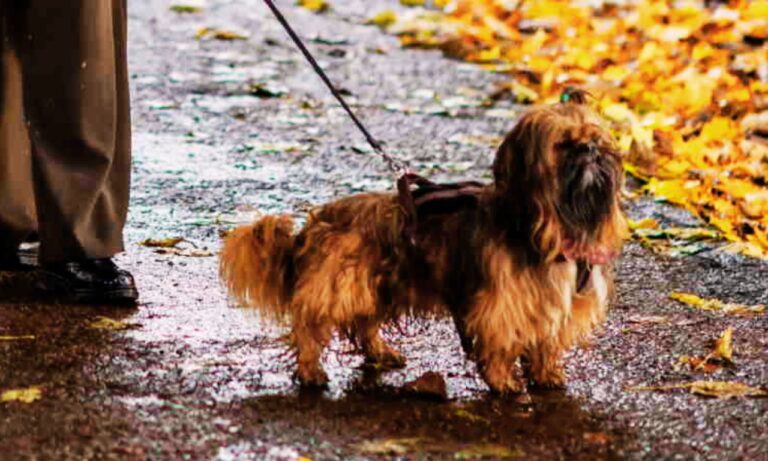Oldest Alaskan Malamute Age: Alaskan Malamutes are one of the oldest and most majestic dog breeds, originally bred to haul heavy sleds across the brutal cold of Alaska. Known for their strength, endurance, and gentle nature, they capture hearts not just with their wolf-like appearance but with their loyal spirit. But if you’re considering adding a Malamute to your family—or you already have one—you might wonder: How long do Alaskan Malamutes live? and What is the oldest Alaskan Malamute on record?
In this guide, we’ll explore the typical lifespan of these incredible dogs, real stories of record-holding Malamutes, and what you can do to help your beloved companion live a long and happy life.
Discover the ideal option by exploring what is the best collar material for a Bichon Frise to ensure your pet’s comfort and durability.
Blog Highlights
ToggleWhat Is the Average Lifespan of an Alaskan Malamute?
Like many large breeds, Alaskan Malamutes have a somewhat shorter lifespan compared to smaller dogs. On average, a healthy Alaskan Malamute lives between 10 to 14 years.

Here’s a breakdown:
- Average lifespan: 10–12 years
- Healthy, well-cared-for individuals: up to 14 years
- Exceptional cases: 15 years and beyond
Their lifespan depends heavily on genetics, lifestyle, diet, and medical care.
Malamutes are known for their durability, but like any breed, they are prone to certain health conditions that can influence longevity, which we’ll dive into shortly. The American Staffordshire Terrier’s coat type is short, sleek, and easy to maintain with regular brushing.
What Is The Oldest Alaskan Malamute Age?
While there is no official Guinness World Record specifically for the “Oldest Alaskan Malamute,” anecdotal reports from owners and breed enthusiasts provide some inspiring examples.
- One of the Oldest Alaskan Malamute Age documented Alaskan Malamutes was a dog named Aurora, who lived to be 16 years old.
- Several other Malamutes have reportedly lived 15 to 16 years, although verifiable records are scarce compared to more popular breeds like Labradors or Chihuahuas.
In the world of giant Arctic dogs, reaching 14–16 years is an extraordinary achievement. Considering the physical demands on their bodies—especially their joints and heart—it’s a testament to excellent breeding, outstanding care, and a bit of good fortune.
How Malamutes Age Over Time
Alaskan Malamutes tend to age gracefully, but you’ll notice distinct stages as they move from rambunctious puppies to dignified seniors.
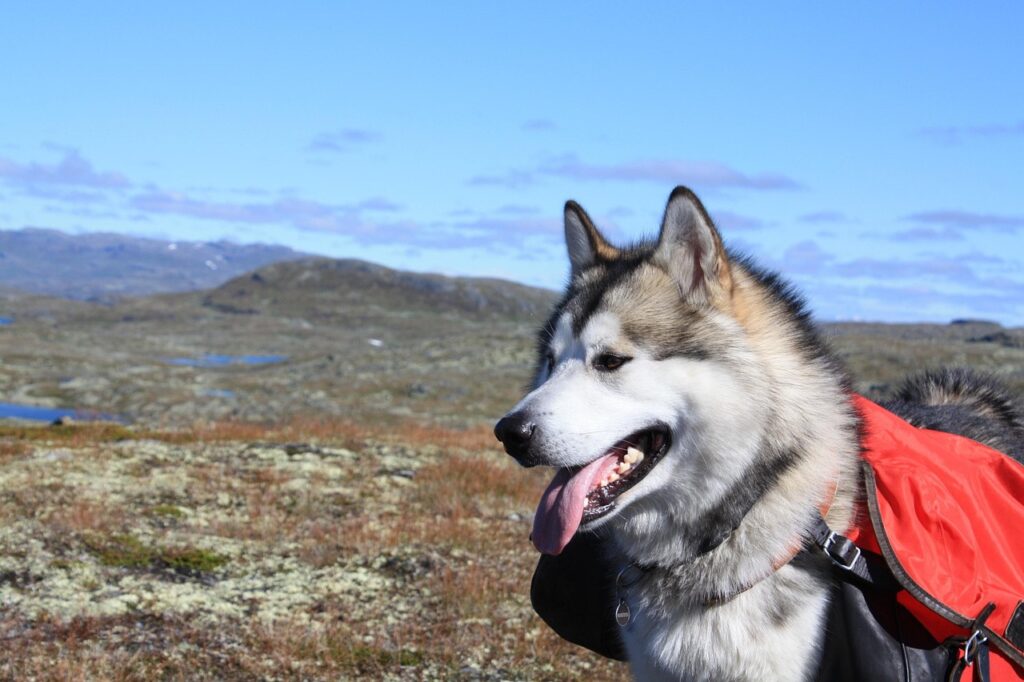
| Age | Stage | Characteristics |
| 0–1 years | Puppy | Rapid growth, high energy, learning boundaries |
| 1–3 years | Young adult | Peak physical strength, full maturity |
| 4–7 years | Adult | Settled temperament, sustained activity levels |
| 8–10 years | Senior | Start of slower movement, more naps |
| 11–14 years | Elderly | Noticeable aging signs, possible health issues |
| 15+ years | Exceptionally old | Rare, needs intensive senior care |
By 8 years, most Malamutes are considered seniors, and you’ll likely see signs like graying fur around the muzzle, a slower pace on walks, and longer recovery times after exercise.
The best collar size for an American Staffordshire Terrier ensures a comfortable and secure fit for your dog during walks and training.
Factors That Influence an Alaskan Malamute’s Lifespan
Not every Malamute will live to 14 or 16 years, but certain factors can greatly enhance their odds of a long life.
1. Genetics
Good breeding is fundamental.
Malamutes from responsible breeders—who test for common hereditary diseases—have a better chance of living longer. Dogs bred for extreme size or looks rather than health often suffer from more serious conditions.
Ask your breeder about family history, particularly:
- Longevity of parents and grandparents
- Health clearances (hips, eyes, heart)
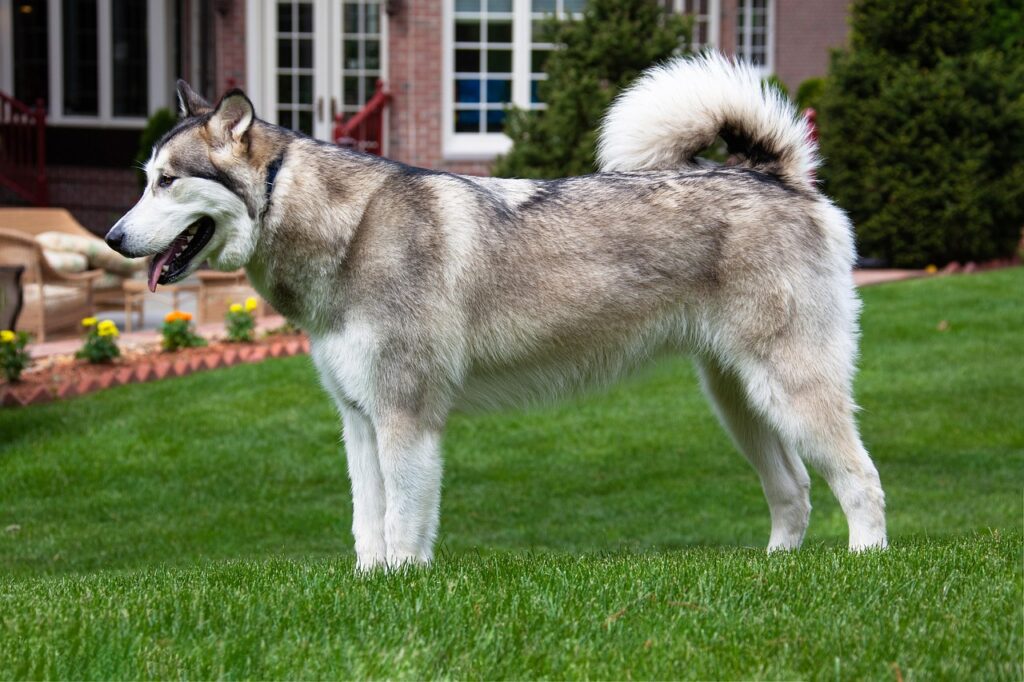
2. Diet and Nutrition
Feeding a balanced, high-quality diet is crucial for every stage of life.
Puppies need food formulated for large breeds to control their growth rate and avoid orthopedic issues.
Adults need calorie-conscious meals to prevent obesity, which can shorten lifespan.
Senior Malamutes often benefit from diets supporting joint health and lower fat content.
Fresh fruits, vegetables, lean proteins, and healthy fats are all excellent for long-term well-being.
3. Exercise
Alaskan Malamutes are working dogs through and through.
They require daily vigorous exercise to stay physically and mentally healthy.
Without enough exercise, they can develop:
- Obesity
- Joint stiffness
- Depression and destructive behaviors
Regular walks, hiking, running, and activities like sled pulling (even in urban settings!) keep Malamutes in top shape.
4. Preventive Healthcare
Routine veterinary care makes a massive difference.
Key preventative measures include:
- Annual check-ups: Catch issues early
- Vaccinations: Guard against common diseases
- Dental care: Prevent gum disease and infections
- Parasite control: Fleas, ticks, and worms can seriously impact health
Neutering or spaying at an appropriate age can also decrease the risk of certain cancers. To find out the what size collar for an Affenpinscher, ensure you measure your dog’s neck correctly for a perfect fit.
Common Health Issues That Affect Alaskan Malamutes
Certain genetic predispositions can influence how long your Malamute lives.
1. Hip Dysplasia
A major concern for large breeds, hip dysplasia can cause chronic pain and arthritis. Managing weight and avoiding excessive jumping in young dogs can help.
2. Hypothyroidism
This common endocrine disorder can slow metabolism, cause lethargy, and weight gain. It’s usually manageable with medication once diagnosed.
3. Bloat (Gastric Dilatation-Volvulus)
Bloat is a life-threatening emergency where the stomach twists.
Feeding smaller meals and avoiding intense exercise right after eating can reduce risk.
4. Inherited Polyneuropathy
A nerve disease that affects muscle coordination and strength, seen occasionally in Malamutes. Genetic testing is helping to lower its occurrence.
5. Eye Conditions
Cataracts and progressive retinal atrophy (PRA) can impact vision. Early diagnosis helps in managing symptoms and adjusting their living environment.
Understanding these risks allows for proactive care that can extend your dog’s life.

Signs Your Alaskan Malamute Is Aging
As your Malamute moves into seniorhood, you’ll notice certain changes:
- Gray hairs, especially around the muzzle and eyes
- Slower walking or reluctance to exercise
- More frequent napping
- Stiffness when rising
- Decreased hearing or vision
- Behavioral changes (more clingy or, conversely, grumpier)
Recognizing these signs early means you can adjust their lifestyle to keep them comfortable and thriving. Check out the best dog collars for Border Collie to find durable, stylish, and comfortable options for your active dog.

Tips to Help Your Malamute Live Longer
You can’t change genetics, but you can create an environment that supports health and happiness for years to come.
1. Prioritize Weight Management
Extra weight puts tremendous strain on joints, organs, and the heart.
Feed measured meals, avoid fatty treats, and stay active.
2. Keep Their Mind Sharp
Malamutes are highly intelligent and need mental stimulation.
Activities that boost brain health include:
- Puzzle toys
- Nose work games
- Obedience and agility classes
- New trick training
Mental exercise can stave off cognitive decline in older dogs.
3. Joint Supplements
Early introduction of joint supplements (like glucosamine, chondroitin, and omega-3 fatty acids) can help maintain mobility into old age.
4. Comfortable Living Environment
As they age, Malamutes appreciate:
- Orthopedic beds
- Non-slip flooring
- Easy access to food, water, and outside
- Ramps for vehicles instead of jumping
Small accommodations go a long way toward improving their quality of life.
5. Regular Veterinary Monitoring
Annual bloodwork can catch issues like thyroid problems, kidney disease, or early-stage cancer when they are more manageable.
At age 7–8, talk to your vet about transitioning to “senior care” protocols.
Real Stories: Oldest Alaskan Malamutes
Hearing about real-life Malamutes who lived well into their senior years is always inspiring.
- Aurora: Lived 16 years in Alaska. Aurora stayed active into her teenage years thanks to daily walks and homemade balanced meals.
- Koda: Reached 15 years and 2 months. His family attributes his longevity to a raw diet, minimal vaccinations, and lots of mountain hikes.
- Nanuk: Lived just shy of 16 years in Canada. Despite slowing down in his final years, Nanuk maintained a playful spirit and loved swimming.
These dogs prove that with the right care, Alaskan Malamutes can beat the odds and bless their families for many wonderful years. For guidance on choosing the right collar size for an Airedale puppy, check out this detailed guide.
Fun Fact: Ancient Roots
The Alaskan Malamute is one of the few breeds directly descended from the first dogs who crossed into North America with Paleolithic hunters.
They’ve been pulling sleds, hauling loads, and guarding camps for thousands of years, earning their status as true survivors.
That rugged ancestry might just be part of the reason some Malamutes live such impressively long lives. For insights on whether Airedales are good off-leash, explore this comprehensive article.
Final Thoughts: Celebrating Every Year With Your Malamute
Alaskan Malamutes are not just dogs — they are adventure companions, family guardians, and lifelong friends.
While the average Malamute lifespan is 10–14 years, many beat the odds with proper care, excellent genetics, and a loving home.
To summarize:
- Oldest Alaskan Malamute Age on record lived up to 16 years.
- Average lifespan is around 10–12 years.
- Healthy diet, exercise, preventive care, and mental stimulation are key ingredients for longevity.
No matter how many years you have with your Malamute, each moment is priceless. With their soulful eyes, endless loyalty, and warm snuggles on cold nights, these dogs leave pawprints on your heart that last forever. 🐾❄️


